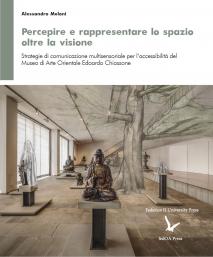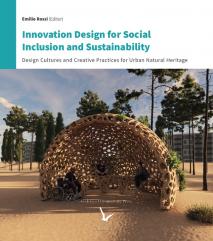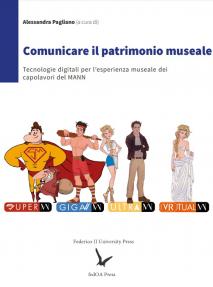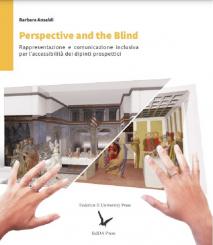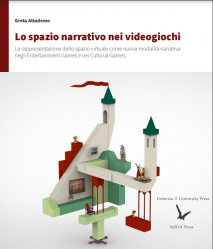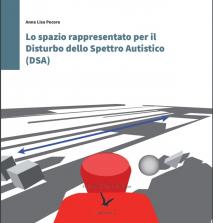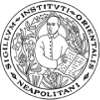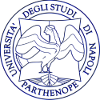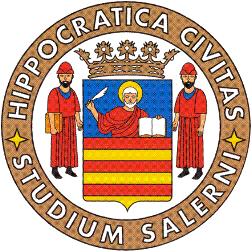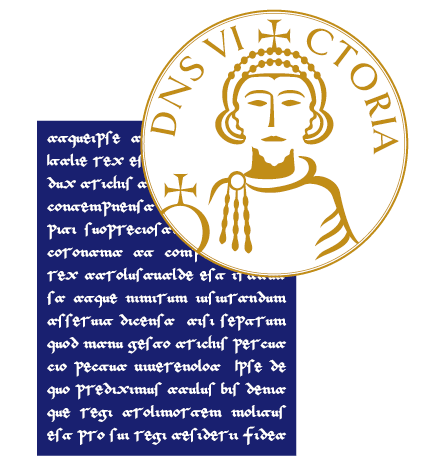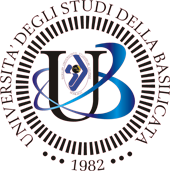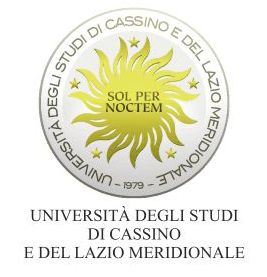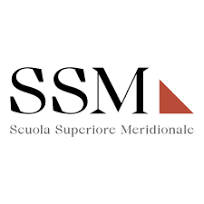FedOAPress - Oltre l'accessibilità. Patrimonio Culturale for All
Editore: FedOA - Federico II University Press
Collana: Oltre l'accessibilità. Patrimonio Culturale for All
Direttori della collana / Responsabili Scientifici: Erminia Attaianese (Università Federico II di Napoli), Alessandra Pagliano (Università Federico II di Napoli)
Comitato Scientifico: Barbara Ansaldi (Ph.D. Università di Napoli Federico II); Greta Attademo (Università Federico II di Napoli); Maresa Bertolo (Polimi); Carmela Bravaccio (Università Federico II di Napoli); Cristina Candito (Università di Genova); Francesco Delizia (Certosa e museo di San Martino); Tommaso Empler (La Sapienza); Laura Farroni (Università Roma Tre); Paolo Giulierini (MANN); Giovanni Minucci (Tulipano Art Friendly); Nigel Newbutt (IALT); Anna Lisa Pecora (Ph.D., Ministero della Pubblica Istruzione)¸ Loretta Secchi (Alma Mater di Bologna); Thaisa Sampaio (Universidade Federal De Alagoas); Zilsa Maria Santiago (Universidade Federal do Ceará); Isabella T. Steffan, (Architetto Esperto in Design for All); Pierfrancesco Talamo (PAFLEG); Francesca Tosi (Università di Firenze), Maria Venditti (FISH).
Comitato editoriale Morena Barilà, Alessandra Coppola, Daniele De Pascale, Carlo Lubrano, Laura Papa, Giulio Salvatore.
Lingue: Italiano, Inglese
Caratteri e contenuti della collana: La possibilità di fruire appieno del patrimonio culturale, nelle sue diverse espressioni e dimensioni, è una libertà fondamentale della persona, basata sui principi cardine di eguaglianza e non discriminazione delle norme internazionali a tutela dei diritti umani (MIBAC, 2016). Tra queste, la Convenzione delle Nazioni Unite sui diritti delle persone con disabilità (UN, 2008), sancisce all’art. 30 che è riconosciuto il diritto di tutti gli individui alla vita culturale in condizioni di uguaglianza, adottando misure adeguate a garantire l’accesso ai prodotti culturali, di qualsiasi tipo e natura, e ai luoghi che rappresentano o che accolgono attività culturalmente significative. Questo principio viene confermato nel 2000 con la Carta dei diritti fondamentali dell’Unione Europea, che riconosce il diritto delle persone con disabilità a beneficiare di tutte le garanzie per la promozione di autonomia, inserimento sociale e professionale, e partecipazione alla vita della comunità. Ma il tema dell’accesso e della piena fruizione riguarda tutti gli individui, poiché alla luce della nuova accezione di disabilità, introdotta dall’Organizzazione Mondiale della Sanità nel 2001 (ICF, 2001), ogni persona, nell’arco della propria vita, può trovarsi in una situazione che gli provoca condizioni di limitata abilità, fisica, mentale, intellettiva e sensoriale. Per questo, i concetti di abilità/disabilità, riferiti alle persone, si legano a quelli di accessibilità/barriera/ostacolo, riferiti all’ambiente, dal momento che, le caratteristiche dei contesti fisici e informativi, possono ridurre o annullare, ma anche favorire e valorizzare, le sue capacità funzionali e di partecipazione sociale, realizzando di fatto, i presupposti per lo sviluppo di diseguaglianze e discriminazioni, o al contrario, le premesse per garantire uguaglianza e inclusione. Del resto il Codice dei Beni Culturali e del Paesaggio sancisce che promuovere la conoscenza del patrimonio culturale e assicurare le migliori condizioni per la sua piena fruizione per tutti, sono attività centrali per la valorizzazione dei siti culturali; essi sono quindi chiamati, in maniera attiva, a offrire adeguati livelli di accessibilità, fisica e/o percettivo-cognitiva, soddisfacendo i bisogni e le esigenze espresse, implicite o speciali, della più ampia fascia di pubblico, a prescindere da diversità e disabilità, temporanee o permanenti. Sulla base di queste premesse, la collana intende ospitare gli esiti di ricerche e applicazioni sul tema della progettazione inclusiva per l’accessibilità, la fruizione e la percezione fisica, cognitiva ed emotiva del Patrimonio Culturale, dai siti di interesse culturale ai prodotti culturali, di qualsiasi tipo e natura, ai luoghi che rappresentano o accolgono attività culturalmente significative, secondo l’approccio del Design for All. Tale approccio impone al progetto una dimensione inclusiva che va oltre il concetto di disabilità ponendo al centro il rispetto dell’uomo reale, la sua variabilità, diversità e autonomia, in una chiave human-centred. Nella collana il tema del progetto inclusivo si integra con quello delle tecnologie digitali applicate all’esperienza di fruizione, le quali, se concepite e sviluppate anch’esse secondo principi inclusivi, possono rappresentare strumenti innovativi di grande efficacia per il potenziamento delle abilità umane, il superamento delle barriere e l’accesso alla cultura di un pubblico sempre più vasto e globale, contribuendo ad una reale valorizzazione del Patrimonio Culturale, e per questo, al miglioramento della società.
Peer Review : Tutti i volumi saranno soggetti a peer review secondo la modalità del doppio cieco.

